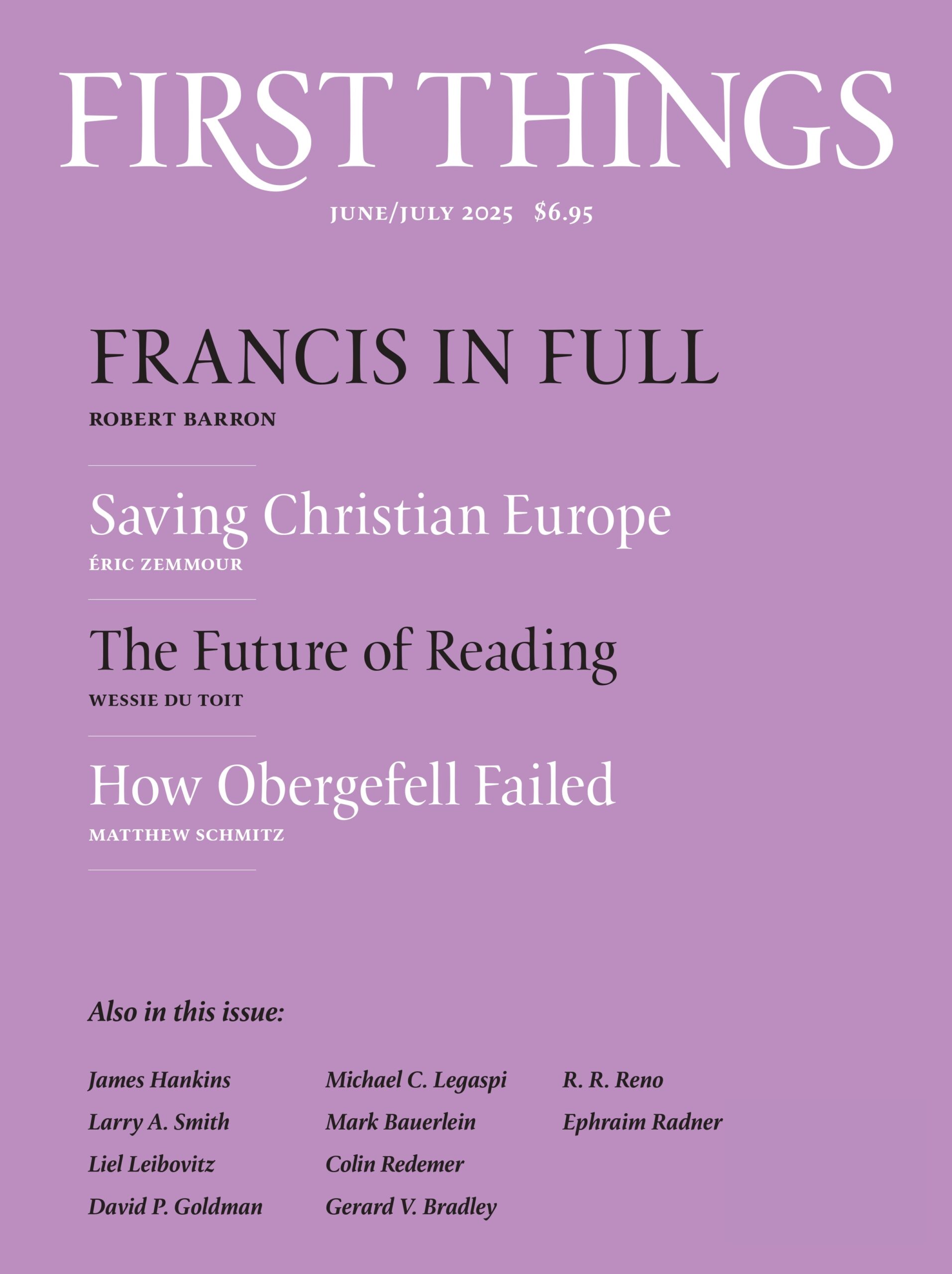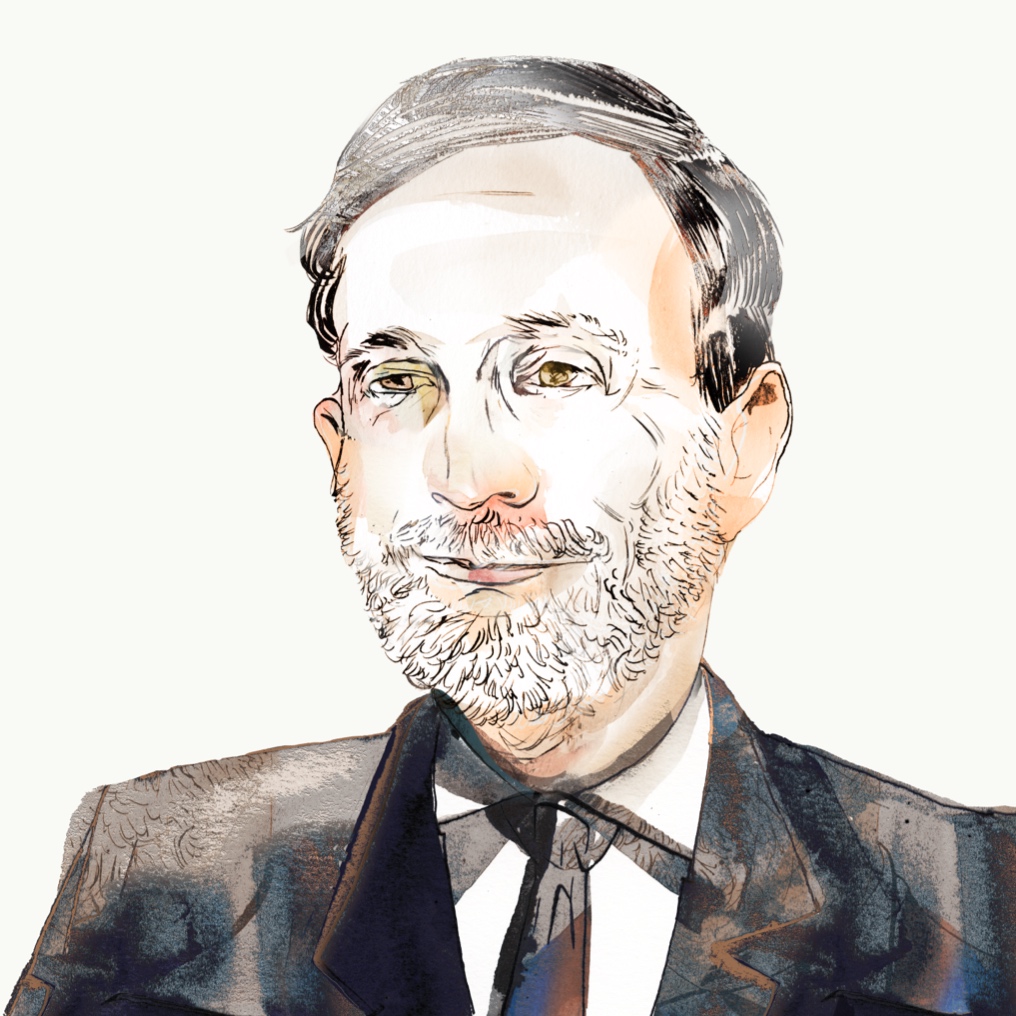
♦ I’ve come to see that early Christian theology is more rabbinic than Platonic. Better: It involves a rabbinic use of Platonism. Early in the third century, Origen, one of the greatest Christian commentators on the Bible, composed On First Principles, the first work of systematic theology in the Christian tradition. The opening sentence states that this marvelous treatise has “no other source but the very words and teachings of Christ.” If we take Origen at his word (and we should), then On First Principles is an exercise in speculative midrash.
♦ Mike Woodruff commenting on a verse from Psalm 23, Surely your goodness and mercy will follow me all the days of my life: “Some think David is saying God’s goodness and mercy will trail us like a Golden Retriever. No. The Hebrew term used here describes hunters tracking prey and armies pursuing enemies. God’s goodness doesn’t lag behind us; it chases us down.”
♦ I draw this commentary from Mike’s splendidly succinct weekly newsletter, “The Friday Update.” I’m a regular reader (and cribber). You can sign up to receive “The Friday Update” in your inbox by going to lakelight.com.
♦ After reading my musings on the return of strong religion, a friend sent me a snippet from an article in The Atlantic, “The Paradox of Hard Work”:
To say that long-distance runners embrace difficulty is to say the obvious. When you watch many thousands of people happily push themselves through a race that they might not even be allowed to finish, though, you start to get the hint that something deeply human is going on. People like things that are really hard. In fact, the enormity of a task often is why people pursue it in the first place. This is a puzzling phenomenon, when you stop and think about it. It violates all sorts of assumptions about rational action and evolutionary selection and economic theory. Psychologists call it the Effort Paradox.
The Effort Paradox obtains with special force in spiritual matters, for grace perfects nature.
♦ Flannery O’Connor explains her use of the strange and disturbed: “When I’m asked why Southern writers have a penchant for writing about freaks, I say it is because we are still able to recognize one. To be able to recognize a freak, you have to have some conception of the whole man, and in the South the general conception of man is still, in the main, theological.” Only recently, a man presenting himself as a woman served as the federal government’s assistant secretary for health. Rather than being recognized as a freak, he was celebrated and elevated to the rank of admiral. Our society is a long way away from a conception of man that is theological.
♦ I owe the O’Connor quote to Chilton Williamson Jr., whose essay on O’Connor, “Flannery at 100—and Forever,” is written in his vigorous and eminently readable style. The piece provides a comprehensive assessment of O’Connor’s achievement and can be found in the Winter/Spring 2025 number of Modern Age. Highly recommended.
♦ Protestant pastor Lucia Lloyd was upset when Trump won in 2016. As a Wall Street Journal story recounts (January 29, 2025), “The pastor shocked her college-age daughters and then-husband when she declared in 2018 that she was moving to Canada after Brett Kavanaugh was confirmed to the Supreme Court.” She took a job at a church in Toronto. But she’s upset again. Some Canadian politicians now aim to roll back transgender rights, and, of course, Trump is talking about Canada as the fifty-first state. Pastor Lloyd worries that her progressive utopia will be ruined. She laments, “It’s very destructive when you can’t count on anything being stable or reliable.” One wonders whether her “shocked” daughters and “then-husband” formulated a similar judgment years ago.
♦ Pascal on the contradictions of the human condition:
Man knows he is wretched. Thus he is wretched because he is so, but he is truly great because he knows it. . . .
Man is naturally credulous, incredulous, timid, bold. . . .
What sort of freak then is man! How novel, how monstrous, how chaotic, how paradoxical, how prodigious! Judge of all things, feeble earthworm, repository of truth, sink of doubt and error, glory and refuse of the universe!
♦ My colleague Dan Hitchens drew my attention to Alexander Pope’s version of Pascal’s contradictions. An Essay on Man: Epistle II:
Plac’d on this isthmus of a middle state,
A being darkly wise, and rudely great:
With too much knowledge for the sceptic side,
With too much weakness for the stoic’s pride,
He hangs between; in doubt to act, or rest;
In doubt to deem himself a god, or beast;
In doubt his mind or body to prefer;
Born but to die, and reas’ning but to err;
Alike in ignorance, his reason such,
Whether he thinks too little, or too much:
Chaos of thought and passion, all confus’d;
Still by himself abus’d, or disabus’d;
Created half to rise, and half to fall;
Great lord of all things, yet a prey to all;
Sole judge of truth, in endless error hurl’d:
The glory, jest, and riddle of the world!
♦ One of my favorite insights from Pascal’s Pensées: “Men despise religion. They hate it and are afraid it may be true.”
♦ Martin Gurri asks a rhetorical question (The Free Press, April 8, 2025): “Has there ever been a more damaging scandal than the abject failure of the governing classes, and of their expert advisers, and of their media mouthpieces, during the Covid-19 pandemic?” There was lots of talk about “disinformation,” but in truth it was officialdom that lied, over and over again.
Health officials lied with abandon. “Fifteen days to slow the spread” was a lie—Dr. Deborah Birx, Trump White House Covid coordinator, admitted in her memoirs that she intended to prolong the lockdowns. “Covid originated in nature” was a lie—Fauci bullied a handful of scientists into authoring an article disproving the Wuhan lab leak theory, then cited the article as definitive evidence without acknowledging his role as its prime mover. “Six feet of social distance” was a lie, as the egregious Fauci has since confessed. “The vaccines prevent infection and transmission” was a lie, as became apparent to those of us who were vaccinated and suffered recurrent bouts of the disease.
Trillions of dollars were spent. Millions of schoolchildren went uneducated. Public trust in experts and institutions was shredded. Gurri notes that nobody has been held accountable. Our governing class pretends that 2020 was just a bad dream. “We have just passed the fifth anniversary of the lockdowns, yet there has been a singular lack of interest among the political and chattering classes in figuring out where they went wrong.” Count me unsurprised by the elite shrug. Nearly our entire political and chattering class was complicit in the disastrous policies and the lies that sustained them.
♦ I encourage readers to visit my Wikipedia page. Notice that I continue to be targeted as someone who spoke out against the spiritual insanity of the lockdowns. I also advise skimming Jonathan V. Last’s denunciation of me in The Bulwark: “How Rusty Reno Infected First Things” (May 2020). Or read Damon Linker: “A pro-lifer shrugs in the face of mass death” (March 2020), wherein Linker describes my opposition to the lockdowns as “American libertarianism raised up into a theological first principle,” and thus a betrayal of Christianity.
♦ In a Compact article (“The Political Roots of the Baby Bust”) that complements his recent First Things article, “Feminism Against Fertility” (May 2025), Darel Paul draws links between partisanship and fertility. Political trends affect fertility rates. “Strong female partisanship is an important part of the story. In the United States, women have stronger partisan identities than do men. Women are also more polarized than men in their partisan affect, liking their own party and disliking the other more strongly.” It turns out that female partisanship is not a general phenomenon. “This gender gap is caused by white female Democrats . . . ; black women and men show no differences in polarization, and Republican men and women show none, either.” Another data point: female Democrats tend not to have children when their party loses. “Rightwing populism continues to grow in popularity, young women continue to move to the political left in response, and fertility decline grinds ever onward.”
♦ The Trump administration has demanded policy changes at Harvard as a condition for its continued receipt of federal funds. One demand is for the establishment of an outside party to certify that all departments and programs ensure viewpoint diversity. Harvard president Alan Garber refuses to comply. He wrote in a statement to the university community, “No government—regardless of which party is in power—should dictate what private universities can teach, whom they can admit and hire, and what areas of study and inquiry they can pursue.” Is Garber ignorant or disingenuous? Has he never heard of Title VI of the Civil Rights Act of 1964 or Title IX of the Education Amendments of 1972? Is he pretending not to know of the existence of Dear Colleague letters from the Department of Education, which are very much about dictating what private universities can and cannot do in many different areas?
The Trump administration is doing what the federal government has been doing for more than a half century: establishing terms that must be met for an educational institution to be eligible for federal funding. For more than fifty years, faculty hiring at universities has been monitored by in-house university offices of civil rights compliance. In more recent decades, student life has been scrutinized by offices of Title IX compliance. Past administrations have employed this system to force universities to do their bidding. The Obama administration compelled universities to adopt specific standards for adjudicating sexual harassment complaints. The Biden administration required universities to allow males to compete in women’s sports.
♦ On April 16, I sat down with Anna Moreland for First Things’ annual Chicago Conversation: “Cultivating Virtue in the Age of TikTok.” Anna teaches at Villanova University. Her experiences mentoring Gen-Z students provided the impetus to compose a guide to sanity for young people, The Young Adult Playbook: Living Like It Matters, which she co-wrote with her former colleague, Thomas Smith. We discussed the dark realities of undergraduate life: the relentless drive to perform, the overscheduled lives without leisure, and the dysfunctional male-female dance. But Anna reminded us that young people are, well, people, and they want to live human lives. That desire can be encouraged, even in the age of TikTok.
♦ We have a rich menu of events coming up. Our annual Intellectual Retreat in New York takes place on August 8–9. The theme: “Faith in the Technological Age.” Retreat participants will receive a packet of readings in advance. Tutors from Eastern University’s Templeton Honors College will lead the seminars.
Your humble scribe delivers a lecture in Little Rock, Arkansas on September 18. My topic: “The Return of the Strong Gods in Arkansas.” I look forward to seeing our Razorback readers.
On September 22, Matthew Crawford delivers the annual Austin Lecture, co-sponsored by First Things and the Center for Christian Studies. The lecture title: “Can Christianity Be Noble?”
It’s never too soon to put the Erasmus Lecture on your calendar. This year, the lecture will be delivered by Bishop Erik Varden. It will take place on November 3.
♦ Humbe Ojeda seeks to form a ROFTers group in San Diego. To join, contact him at [email protected].
The Church’s Answer to the World (ft. Carter Griffin)
In the latest installment of the ongoing interview series with contributing editor Mark Bauerlein, Fr. Carter Griffin…
An Important Civics Lesson, Well Taught
The permanent exhibit in the rotunda of the National Archives in Washington, D.C., includes original copies of…
Voyages to the End of the World
Francis Bacon dreamed of abolishing disease, natural disasters, and chance itself. He also dreamed of abolishing God.


